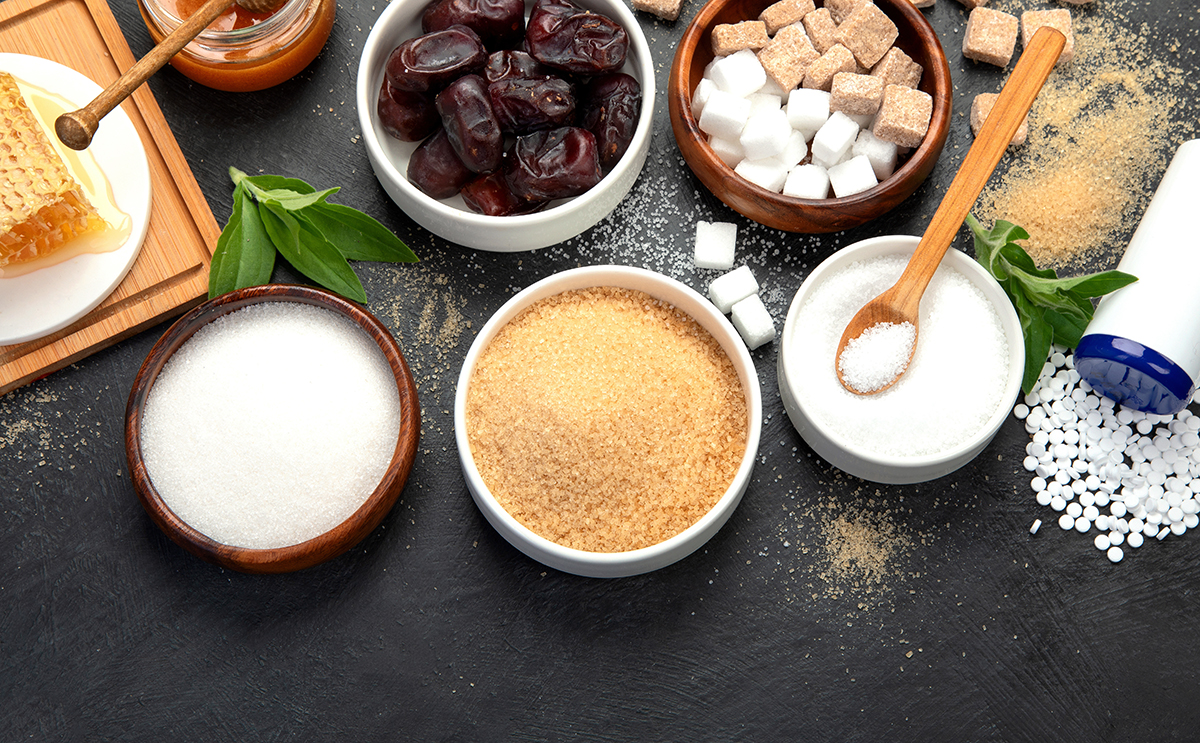What is Erythritol and Is It Safe?
With sugar and its negative health effects increasingly coming into focus, alternative sweeteners are more popular than ever.
As such, you may have now heard of the sweetener erythritol and have questions about whether it’s safe, if it’s healthy, and more. Although it seems new, it’s actually been around for some time. In fact, it occurs naturally in some foods and has been in use as a sweetener since 1990.
What is erythritol?
Erythritol is what’s known as a sugar alcohol. These are compounds that chemically resemble sugar and alcohol (it’s worth noting they don’t contain any actual alcohol). They occur naturally in certain foods and come from plant products such as fruits and berries.
Sugar alcohols have a sweet taste and are lower in calories than regular sugar and as a result, are a popular ingredient in low-calorie and low-sugar foods. Other sugar alcohols you see on food labels include isomalt, xylitol, sorbitol, and maltitol.
Erythritol sets itself apart from other sugar alcohols due to its much lower calorie content. For example, erythritol contains only 0.24 calories per gram vs 2.4 calories per gram in xylitol, 2.6 calories per gram for sorbitol, and 4 calories per gram for sugar. Even with its tremendously lower calorie content, erythritol is nearly as sweet as sugar (around 70%) so it’s easy to understand its increasing popularity.
Is Erythritol Safe?
Generally, erythritol has been found to be safe to consume. This shouldn’t come as much of a surprise as it naturally occurs in foods like fruits and vegetables though in small amounts.
Although erythritol is safe to consume, certain populations will want to know exactly how it will interact with their bodies in a few key areas.
Erythritol and Gut Health
Erythritol is well-tolerated by healthy people with no existing digestive issues. However, those with IBS, SIBO, or who have had bad reactions may want to avoid erythritol as it can make symptoms worse.
Most sugar alcohols remain undigested until reaching the colon where they are fermented and release gases that cause bloating and discomfort. Unlike other sugar alcohols, erythritol doesn’t seem to have this effect. Instead, it mostly gets absorbed into the bloodstream before reaching the colon. After that, it mostly passes through the urine unchanged.
How Erythritol Metabolizes
When erythritol is consumed, around 90% enters the bloodstream and 10% makes its way to the intestines where some is excreted unchanged and some is digested by intestinal bacteria at the lower part of the large intestine, thereby generating short-chain fatty acids and other organic acids.
Erythritol and Blood-Glucose Levels
Erythritol has not been found to spike blood-glucose levels in healthy individuals or those with diabetes. Extremely small-scale studies found no negative effect in diabetic patients after ingesting erythritol one time in one study and consuming it regularly over the course of two weeks in a separate study.
Many sugar-free foods contain calories and carbohydrates from other sources so erythritol-sweetened foods should still be eaten with care.
Erythritol and Heart Health
A small pilot study suggests erythritol might improve circulation by way of improving small-vessel endothelial function, especially for those with diabetes. The data also points to an ability to improve circulation by way of reducing arterial stiffness.
With these findings, erythritol might have a slightly positive effect on heart health.
*The linked study did not have a control group and further studies are needed to say whether this benefit is conclusive and not a result of outside factors like participants exercising more or eating better.
Erythritol and Dental Health
Erythritol, unlike sugar, doesn’t have any damaging effects on teeth and may even have a positive impact on dental health.
The reason this happens is that when sugar is consumed, the bacteria in the mouth feeds on it and release acids that damage tooth enamel. Studies have indicated that erythritol, on the other hand, may even suppress the growth of these bacteria directly. Studies have yet to show any definitive link between erythritol use and a decrease in tooth cavities though.
How Much Erythritol is Okay to Consume?
There are no official guidelines but people can generally tolerate 1 gram of erythritol per 1 kilogram (2.2 pounds) of body weight.
This means the average American man, weighing 90 kilograms (199 pounds) could safely tolerate 90 grams of erythritol per day while the average American woman weighing 77 kilograms (170 pounds) could tolerate 77 grams of erythritol.
How to Use Erythritol
You can generally use erythritol the same way you would use sugar; add it to your coffee or try using it in place of sugar in your baking. Keep in mind that erythritol is only about 70% as sweet as sugar. Recipes might need some adjustment and you may find the textures to be slightly different.
Bottom Line
Erythritol is an increasingly popular alternative sweetener that falls into the category of sugar alcohols. Its key benefits are that it’s been found to be safe for those with diabetes, is low in calories, and may even help with dental health. Those who already have gut health conditions like IBD, IBS or Crohn’s may still want to use it with caution.
This article is provided for informational purposes only and is not intended to be used as medical advice. If you have immediate concerns about your health, please seek the help of your physician.
*These statements have not been evaluated by the Food and Drug Administration. This product is not intended to diagnose, treat, cure or prevent disease.






